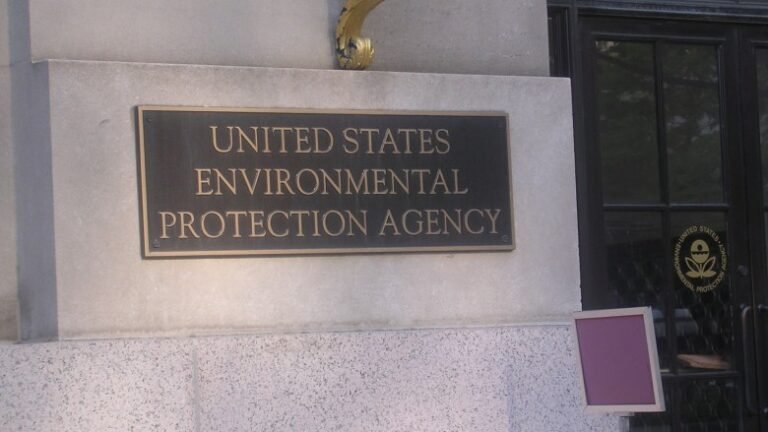

Research & Developments is a blog for brief updates that provide context for the flurry of news regarding law and policy changes that impact science and scientists today.
On 3 June, the U.S. House of Representatives passed a 940-page spending bill containing President Donald Trump’s domestic policy agenda. After the Senate passed the bill 2 days ago, it cleared the House by a four-vote margin and it will now head to Trump’s desk to be signed into law.
The bill provides trillions of dollars in tax cuts, boosts the fossil fuel industry, and dismantles incentives for clean energy, fulfilling Trump’s campaign promise to remake the U.S. energy economy in favor of oil and gas.
“Congress has betrayed the working people of this country. This budget bill is the largest-ever transfer of wealth from working families to the ultra-rich and one of the most environmentally destructive pieces of legislation in U.S. history,” said Collin Rees, U.S. campaigns manager at Oil Change International, a clean energy advocacy group, in a statement.
Related
• How the G.O.P. Bill Will Reshape America’s Energy Landscape
• A List of Nearly Everything in the G.O.P. Bill, and How Much It Would Cost or Save
• Chart: ‘Big, Beautiful Bill’ would cause energy bills to go up in every state
• The Most Perverse Part of the ‘Big, Beautiful Bill’
• Get Involved: AGU Science Policy Action Center
Some of the provisions that most concerned renewable energy and environmental advocates ultimately did not make it into the bill. A tax on future wind and solar projects was removed; the bill no longer mandates sales of public land; and tax credits for companies building nuclear, hydroelectric, and geothermal power plants were not targeted by the bill, according to the New York Times.
“America, get ready for a safer, stronger, more affordable, and Energy Dominant future,” Doug Burgum, secretary of the U.S. Department of the Interior, wrote on X. According to a 25 February report from the Clean Energy Buyers Association, repealing clean energy tax credits, which the bill calls for, would raise electricity prices for U.S. residents by nearly 7% on average by 2026.
Contained within the bill are provisions related to climate, energy, and Earth science that would:
- Phase out tax credits that have been in place for decades incentivizing wind and solar power projects. “We’ll continue to build out renewables, but we’ll build out a lot slower,” David Carrol, chief renewables officer for ENGIE North America, a major power plant developer, told the New York Times.
- Repeal tax credits for consumers who buy new or used electric cars, as well as incentives for businesses to buy electric trucks.
- Postpone fees on methane leaks from oil and gas operations.
- End tax credits for homeowners to upgrade energy efficiency in their homes. In 2023, 3.4 million Americans took advantage of these incentives, according to Rewiring America, an electrification advocacy nonprofit.
- Provide tax breaks for oil and gas producers.
- Rescind unspent funding from President Joe Biden’s Inflation Reduction Act.
- Mandate that millions of additional acres of federal land be made available for mining.
- Provide tax breaks for U.S. producers of metallurgical coal (a form of coal used to make steel) and lower royalty rates for coal companies that mine on federal lands.
- Mandate oil and gas lease sales in the Gulf of Mexico, the American West, and Alaska’s Arctic National Wildlife Reserve.
“This bill will be the most transformational legislation that we’ve seen in decades in terms of access to both federal lands and federal waters,” Mike Sommers, chief executive of the American Petroleum Institute, told CNBC. “It includes almost all of our priorities.”
—Grace van Deelen (@gvd.bsky.social), Staff Writer
These updates are made possible through information from the scientific community. Do you have a story about how changes in law or policy are affecting scientists or research? Send us a tip at eos@agu.org.

Text © 2025. AGU. CC BY-NC-ND 3.0
Except where otherwise noted, images are subject to copyright. Any reuse without express permission from the copyright owner is prohibited.






